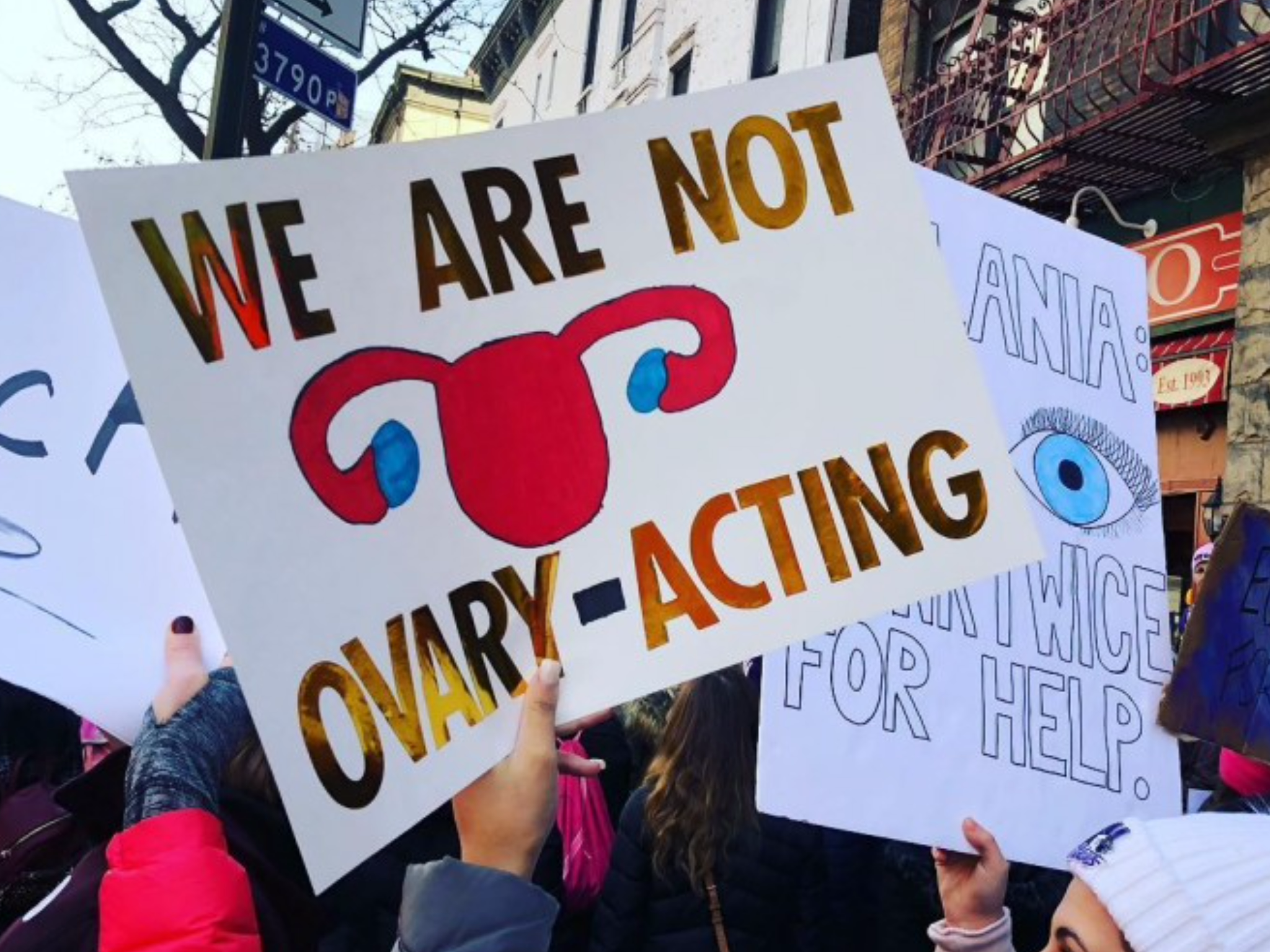
Here are some places to start:
#1 Say the word “period.” Say it loud, say it often, say it like it is.
#2 Get body lit. Read books, ask questions, take notes on your bod and how it feels. Talk to your healthcare providers and research your choices. Your body belongs to you.
#3 Check your biases. Good allies help create a safe space for reproductive agency and autonomy. No matter your voice or your view, we all have biases that manifest unconsciously in our daily actions. We recommend taking an Implicit Bias Test like this one from Harvard to help discover your biases and commit to conscious change. Remember the power of your actions and words.
#4 Donate period products to those in need. Aunt Flow is doing amazing work here, and community organizers are running period product collection and distribution efforts from coast to coast. (They’re our heroes.) Write us to connect with an organizer in your area.
#5 Volunteer and spread the word about organizations working to protect reproductive rights and/or providing essential education, resources and care for millions of people.
Our favorites include:
◦ ACLU
◦ Guttmacher Institute
◦ Planned Parenthood
◦ Reproductive Health Access Project
◦ SIECUS: Sex Ed for Social Change
◦ TEA Fund
◦ Yellowhammer Fund
BONUS: A Short Chat on Period Shame
Here at Phasey we chew up studies for breakfast, so when we did a deep dive on Western period shame, this one, from the British Journal of General Practice, stood out. It made us cry. (Period shame and oppression elsewhere in the world is so real, we’re going to need an entire other convo to break that one down.)
To paraphrase, the psychosocial aspect of periods has been gloriously under-studied. It’s possible that you feel bad about your period because religions and political entities decided a very long time ago that your period was “dirty.” It’s possible that taboo has stuck around for so long that you convinced yourself of the very same thing. It’s possible that, for several days every single month, you pretend as if you are not on your period and you conceal and hide and feel bad about yourself. It’s possible that your feelings about have had an effect on the way you feel about your body or the way you make decisions about sex. Maybe you were still a kid when you learned the etiquette. Hide a tampon up your sleeve, in your pocket, in your pencil pouch, your purse. Maybe you’ve lied about your period to your boss because you don’t feel safe discussing menstruation at work. Tie a sweater around your waist, fold TP in your pants.
Spoiler: it’s not your fault.
Anyway, read this maybe — it was written in 2006 — and see that while we may have come of age into this story and learned about our bodies in a world that made them feel dirty or strange or separate from us, it doesn’t have to stick. The average menstruator will experience 500 periods in their lifetime, and maybe your next is your time to reclaim yours.
Suggestions welcome! Email us your favorite organizations and thoughts on repro lib at hello@phasey.co . We’ll add them to our list.
*Phasey stands with menstruators of all gender identities and sexual orientations. We also stand with reproductive justice for all. Say the word “period” today. Say it twice if you like it. Use your voice. Be a friend. Change starts with you.
